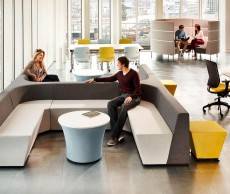February 19, 2016
UK in bottom four of European countries for workplace benefits 0
 Social benefits for people in the workplace in Europe are generally far more generous than in the US, but the UK is in the bottom four overall taking into account factors such as maternity and paternity leave, general parental leave, paid holiday allowance, paid sick leave and unemployment benefits. Only the Swiss, the Irish and the Americans have a more frugal government policy. According to a report by Glassdoor of 14 key European neighbouring economies, conducted in cooperation with Llewellyn Consulting, the countries offering the most generous workplace and welfare benefits overall are Denmark, France and Spain. In terms of paid annual leave, Sweden, France and Denmark all offer 25 working days a year as minimum –the highest entitlement. The UK is bunched towards the bottom again with the likes of Italy, Greece, Germany, Portugal and Switzerland – all offering the minimum 20 days.
Social benefits for people in the workplace in Europe are generally far more generous than in the US, but the UK is in the bottom four overall taking into account factors such as maternity and paternity leave, general parental leave, paid holiday allowance, paid sick leave and unemployment benefits. Only the Swiss, the Irish and the Americans have a more frugal government policy. According to a report by Glassdoor of 14 key European neighbouring economies, conducted in cooperation with Llewellyn Consulting, the countries offering the most generous workplace and welfare benefits overall are Denmark, France and Spain. In terms of paid annual leave, Sweden, France and Denmark all offer 25 working days a year as minimum –the highest entitlement. The UK is bunched towards the bottom again with the likes of Italy, Greece, Germany, Portugal and Switzerland – all offering the minimum 20 days.
































February 15, 2016
The death of the office meme does not fit with a thriving property market 0
by Mark Eltringham • Comment, Flexible working, Property, Workplace design
(more…)